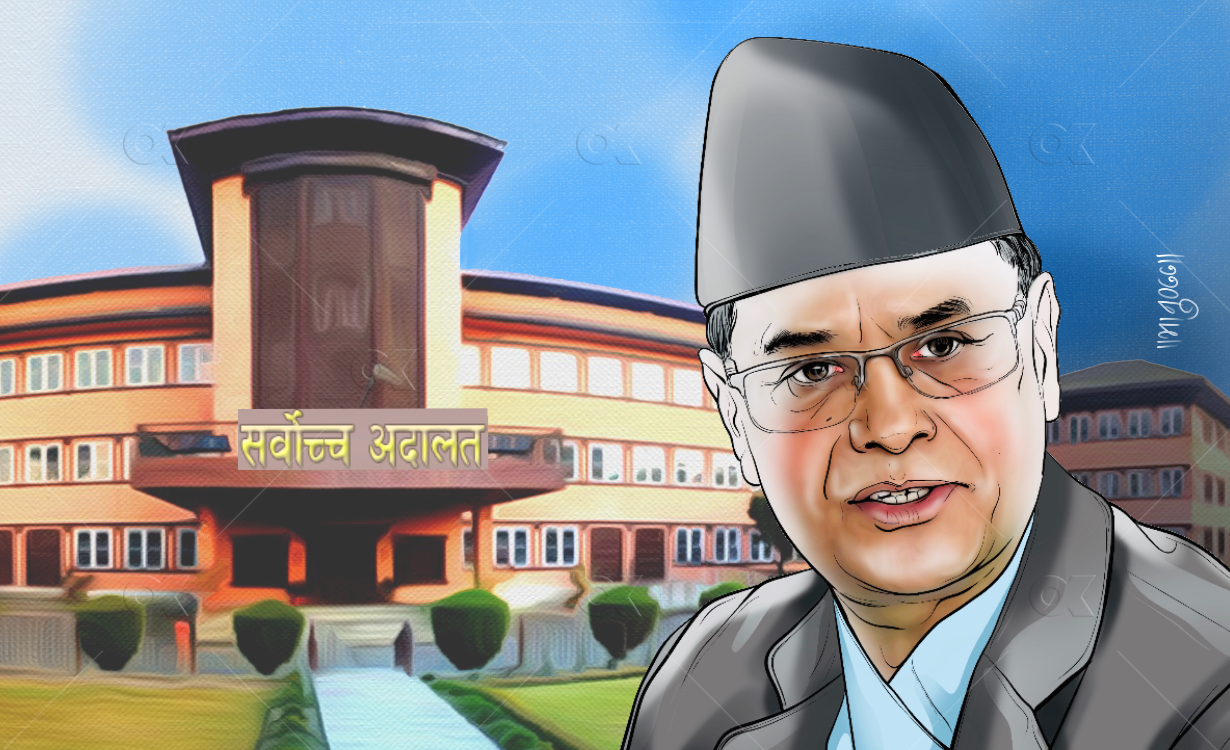The term politics’ in a court system may connote a variety of meanings. The most obvious meaning we can construe might be the political appointment of judges in the court or decisions reflective of political motive (i.e. biased to political leader). Such a problem has really sapped the strength of the judiciary in justice delivery. Such insidious problems will wither away public confidence in the system. Therefore, the Bar, the bench, eminent legal academicians, law students, civil society and concerned stakeholders should direly explore solutions to the problems that are plaguing the judiciary currently.
For whatsoever reason, if judges do not comply with the code of conduct, the breach of professional ethics or judicial misconduct may stain the judiciary, infuriating mass criticism among the public. Then, why should a judge make a concern to uphold judicial sanctity? Why must this institution not stir criticism? There may be a variety of possible answers, but the most obvious one is that it is the ultimate institution that delivers justice to people.
On contrary to this, the judge’s politics within the court may sway decisions on their intention, driven by financial allurement, about how the case should be led. The active political engagement in the appointment of the judges ultimately attacks judicial independence and integrity. For instance, the report submitted by Justice Hari Krishna Karki, who led a committee commissioned by the Supreme Court of Nepal, identifies that corruption within the judiciary is noxious and hence suggests solutions to the problems. As the report says the judiciary needs revitalisation, the politicisation of the judiciary via the political appointment of judges must end. Otherwise, the sanctity of the judiciary will dilute its strength.
A quest for a solution

But, what would be the solutions? For this mere purpose, promotion and enrolment of judicial staff and judges should be made holistically based on judicial conscience, evaluation of professional conduct and citing practices across the world. A formation of an ad hoc committee to solve this issue is necessary. This change can introduce a new paradigm in the recruitment and promotion of staff and judges.
How can judges evince judicial independence and integrity as well as uphold the sanctity of judiciary can be depicted from the following instances:
- The Israeli Chief Justice Esther Hayut is exemplary for the world as she stood against the government meddling in the appointment of judges stating any political appointment of judges should be beyond the political contrivance. She prudentially mentioned that the judicial appointment should not be made thwarting the judicial committee appointment decisions and hence politicisation of the judiciary should be barred.
- Similarly, Judge Randall Rader of US Circuit Court resigned from the post of Chief Judge (Court of Appeal for the US Federal Circuit) after he sent a complimentary email to Ed Reines, an attorney at the same court, for his argument made in another case and in another bench. The reason to resign is that Judge Rader had violated the propriety of the Judiciary and not maintained its impartiality.
It is clear that a judge’s role is considered important in maintaining an impartial and independent judiciary as well as upholding its integrity and sanctity. Most importantly, judges deviating from upholding the same may contribute to building behavioural cynicism within the court. Such cynic behaviour will dilute the internal independence of the judiciary while the politics of appointment of judges followed by their allurement to the financial greed will dilute external independence.
Avoiding cynicism
So, what is behavioural cynicism of judges that ultimately dilutes the functional and institutional independence of the judiciary?

At present, the judiciary of Nepal is in an administrative and moral predicament for not being able to function amidst the protest of the Nepal Bar Association that is seeking the resignation of Chief Justice Cholendra Shamsher Rana upon his judicial and ethical misconduct. There arose a series of questions against him that have brought the judiciary to much criticism. But, the chief justice has theoretically developed behavioural cynicism against Nepal Bar Association Movement, against the bench of other justices of the Supreme Court and against all odds against him. Behavioural cynicism implies that others should not pose a question against one for his/her ethical misconduct in the context of the judicial paradigm.
But, the chief justice had to justify his acts are of honour and has not committed any ethical misconduct with proof. Once the question is raised, justices must uphold either ethics of recusal or ethics of resignation presenting their actions are not avoiding propriety and integrity of the judiciary. Otherwise, the sanctity of the judiciary will be stained. Denial to any of such ethical obligation by any judges in question (for instance, the chief justice at present) and residing in the office with no further justification would be like Godwin’s Law whose corollary would be a situation judges have behavioural cynicism in a politicised and corrupt institution.
Hence, it is an urge of a law student and a rational citizen of the nation that the chief justice, justices, judges or any other staff representing the judiciary in the question of ethical misconduct should create a precedent on ethics of either recusal or resignation to protect the integrity, impartiality, independence and sanctity of judiciary. The impropriety and ethical misconduct are symbolic of behavioural cynicism that will sap the strength of the judiciary.

























